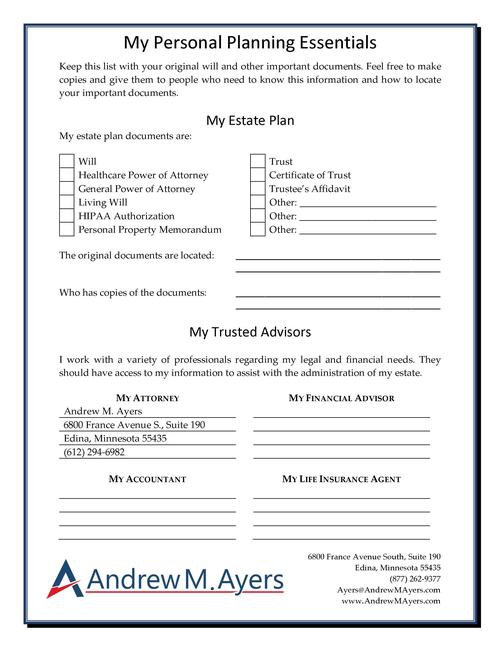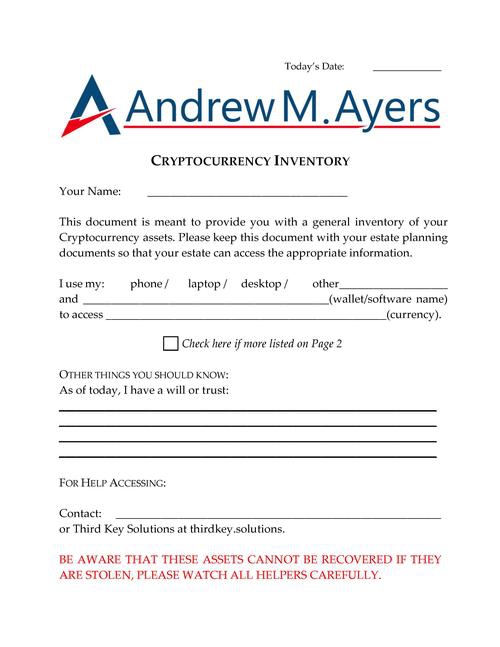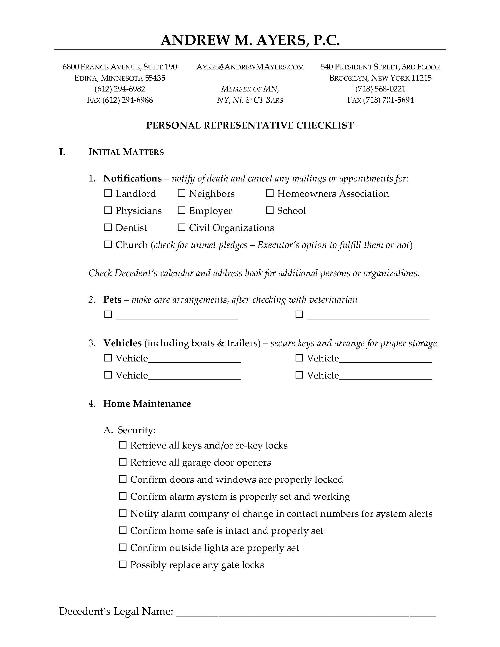What is a testamentary trust?
A testamentary trust is a simplified kind of trust. Unlike a "standalone trust," we're going to talk about a different kind of trust, one that you don't always hear about in blogs and read about in articles.
What is a Testamentary Trust?
A testamentary trust is really like a simplified trust. When you think of a trust agreement, you normally think of a long 50 or 60-page document that has lots of provisions. Trustees, beneficiaries, it has all kinds of in-depth and complex language. But what many of those blogs won't tell you is that many people don't need a standalone trust. In fact, they need a trust only for the situation where they've died. Usually, that is the case if they have children under the age of 18. They want to have a trust set up to protect them.
One way you can do that is what's called a testamentary trust, which is a trust that's set up in your will and it only comes into effect when you die. Now if you're a young couple, and let's say you have a young child or children that are under 18. You can have a testamentary trust that only gets created when you are both dead. At that point, we appoint a guardian and trustee for the children.
This is a simplified type of trust that we can add to an estate plan and it's a very effective way for people with young children to make sure they're planning correctly. We want to make sure we tailor this to your situation. We don't want you to just go to some website and grab an estate plan and then just fill out and sign it in the way you think. And then think that you're all done with this. Your estate plan needs to be signed correctly. And if you have young children, you want to make sure that it has a testamentary trust.
Why Do I Need a Testamentary Trust?
The reason is if your children are under 18, they can't actually inherit property directly from you. If you just make them the beneficiary on your life insurance policy, and both you and your spouse have died, you can create a major tax problem for your estate and a major problem for your children. The way we avoid this is that we set up a testamentary trust that will appoint a trustee to manage the money for them and then the will appoints guardians for the children. This is a very simple fix to what doesn't need to be a complex problem.
Issues with a Testamentary Trust
The first issue that people consider is "how can we put money into the trust?" One of the most common ways you can do this is to take out a life insurance policy and have the life insurance policy paid to your spouse and then if your spouse is already deceased, then you can have it paid into the testamentary trust.
When you're doing this process, you want to be careful who you choose as the trustee. You want to make sure it's a family member who is financially savvy, can manage documents, and who can manage money for your children. You don't want it to be your brother who spends every penny that comes in the door. The whole point of this trust is to protect these assets for your children or your grandchildren. So make sure we have the right people in the right place to take care of them.
Probate Court and Trusts
Now in some states, we have a probate process that can be very onerous, and that's when you read in a blog that you need to have a trust as a way to avoid the probate process. So if you're in one of those states that don't allow for informal probate, then maybe the testamentary trust is not the way you want to go. Maybe you want to look at a revocable living trust that will allow you to right now transfer assets into that trust so that when you die, the trust will be able to distribute assets to your children as beneficiaries or other family members, and you won't have to worry about the probate court.
But I can't answer for you whether or not you should have a standalone or a testamentary trust - that's why you need to work with professionals. So if you're considering adding a trust to your estate plan, or if you have a will, and you'd like to put a testamentary trust in it, let's set up a Legal Strategy Session and we can discuss the best options for you and your family. A testamentary trust is a great option for people with young children, but you want to make sure it's available in your state as the best way to protect your family.









